The Semiconductor Industry’s Global Reach: Why Translation Matters more than Ever

In recent years, the world has experienced a semiconductor shortage due to a complex mix of factors, including the global shift towards electric vehicles (EVs) and the surge in demand for IT technologies due to the increase in demand for PCs and smartphones during the COVID-19 pandemic.
The semiconductor industry is also characterized by its global nature, where international trade is a prerequisite for the industry, and political considerations and economic security have led to the announcement of regulations regarding export controls and investments as a national policy.
Although the semiconductor bubble is over, plans by major global manufacturers to build large-scale fabrication plants are continuing, and translation opportunities related to the introduction of advanced equipment are increasing.
This article explores the critical role of translation in the global semiconductor industry.
Recent Trends and Outlook in the Semiconductor Market
The semiconductor market was on a downward trend until 2019, but began to increase from 2020, with a significant increase in both sales value and unit volume in 2021.
According to the Ministry of Economy, Trade and Industry's production statistics, the number of semiconductor integrated circuits sold in 2021 increased by 12.2% to 28.6 billion units, and the sales value increased by 16.0% year-on-year to 2.4 trillion yen.
In 2022, demand expanded for factory automation (FA) equipment, mobile phone base stations, and data centers. In the automotive sector, the increase in semiconductor installations per vehicle and exchange rate gains due to yen depreciation is improving profitability.
According to the World Semiconductor Market Statistics (WSTS)*, the semiconductor market, which had been on an increasing trend since 2020, saw a drop in demand in mid-2022.
Although there were declines in 2023 for all wafer fabrication equipment, semiconductor test equipment, and assembly and packaging equipment, they are expected to recover in 2024. Both WSTS and Gartner forecast double-digit year-on-year growth, the largest ever.
Reference: List of Statistical Tables (Current Production Statistics, Ministry of Economy, Trade and Industry)
*SEMI (Press release dated December 13, 2022)
Efforts to Strengthen National Semiconductor Industries and Market Expansion
The semiconductor market and related equipment investments temporarily declined in 2023. However, major countries and regions are heavily investing in strengthening their domestic semiconductor industries. Various countries and regions, including Japan, are supporting the semiconductor industry, putting various policies in place as measures to strengthen the industry, and this trend is expected to continue in the future. This is probably to ensure the safety of semiconductors in anticipation of market expansion over the medium to long term.
Additionally, major countries and regions are also making efforts to attract global companies, and it is highly likely that there will be a shortage of human resources, particularly engineers. So, there is an urgent need to secure and train human resources, as there is a risk that a shortage of human resources will lead to delays in semiconductor factory operations.
The Semiconductor Industry's Global Reach
As globally traded products, semiconductors are traded in various countries and regions around the world. Therefore, semiconductor manufacturers around the world are developing a global market presence that includes fabrication. In recent years, countries have stepped up their support to attract global companies, and an increasing number of companies are moving their production bases overseas.
Under the Ministry of Economy, Trade and Industry's "Semiconductor and Digital Industry Strategy," Japan is focusing on developing its semiconductor industry as a nation. With government support, there is a trend among domestic semiconductor manufacturers toward the domestic fabrication of cutting-edge semiconductors, and know-how and human resources are gathered from overseas.
And as semiconductors are international in all processes from fabrication to sales, it is a field where translation is indispensable.
Why Semiconductor Translation Matters and How to Choose the Right Translation Partner
In the semiconductor industry, it is not uncommon for Japanese companies to operate internationally in all aspects, from overseas factories to the transfer of know-how in development, manufacturing, and inspection, and the training of global engineers. Even companies that have an abundance of global human resources may want these valuable assets to work on tasks other than translation.
High-quality and timely translations are crucial for surviving in international competition. Due to the recent shortage of human resources in the semiconductor industry, it is common for translation work to be outsourced.
However, this does not mean that just any translation company will suffice; specialized knowledge in semiconductor translation is essential for high-quality results. Given the global nature of the semiconductor market, translations are needed everywhere, such as in business dealings, customs procedures, and patent applications. Therefore, it is important to hire a translation company with translators who are familiar with all of these.
In addition, since semiconductors are sensitive products, it is important to select a reliable translation company with a security management system and compliance/personal information management.
TOIN’s Semiconductor Translation Services
The strength of TOIN's semiconductor translation services lies in our in-depth knowledge of semiconductors and related fields and the high quality of our translations. With TOIN’s wealth of experience, we can help your global business run smoothly with translations that best suit the environment and semiconductor translations that are right for you.
TOIN has also acquired ISO/IEC27001 (ISMS) certification, the international standard, and is committed to the continuous operation, improvement, and enhancement of our information security management practices.
Our semiconductor translations transcend language barriers to convey information quickly and accurately, leading your business to success.
For safe and effective semiconductor-related translations, please consider TOIN's semiconductor translation services.
Summary
Leveraging over half a century of translation expertise, TOIN supports your global business success, from technical translations to transcreations, or creative translations, that are tailored to your needs.
We will help you overcome language barriers and succeed in international markets with high-quality technical translations and localization into target languages optimized for the local market.
For your global business translation needs, please get in touch with us at TOIN.
▶About the Author
TOIN Corporation Marketing Department
Hiromi Ishikawa
Joined TOIN Corporation in 1990 and was engaged in the production of manuals. Her wide range of duties include everything from transcribing Japanese manuscripts to directing the production of multilingual manuals.
From 2002, her main focus has been on localization project management, and she has been responsible for facilitating many of the company's major projects. Since 2009, she has been working in the Marketing Department, where she has been involved in marketing as well as advertising and public relations activities. She has been a member of the Board of Directors of the Japan Translation Federation and the Asia-Pacific Machine Translation Association since 2018.









